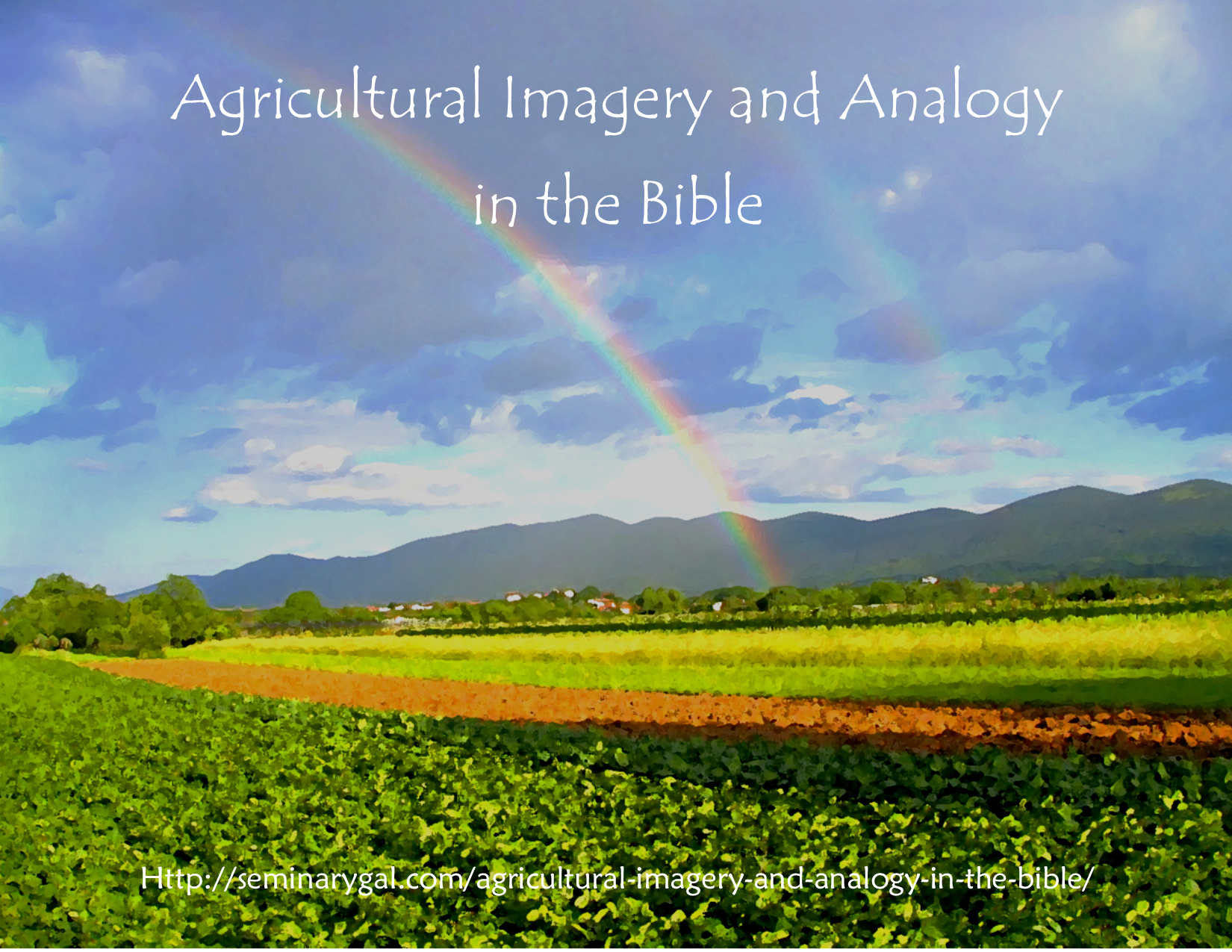What do you think of when you think of the tree of life?
Do you think of something like a fountain of youth that would make you immortal if you were to take one bite of its fruit?
Do you think of its fruit magically making your life more fulfilling?
Or do you think of a tree that was out of reach for sinners?
Genesis 3: 22 And the LORD God said, “The man has now become like one of us, knowing good and evil. He must not be allowed to reach out his hand and take also from the tree of life and eat, and live forever.” 23 So the LORD God banished him from the Garden of Eden to work the ground from which he had been taken. 24 After he drove the man out, he placed on the east side of the Garden of Eden cherubim and a flaming sword flashing back and forth to guard the way to the tree of life.
In Genesis we have a sad picture of self-reliance as its own reward. Now instead of trees yielding fruit for Adam and Eve, it would take hard work to accomplish it as a do-it-yourself program. Instead of whatever carefree life existed before sin, it’s now a life with more worries than you can shake a stick at.
The Fall of Man–instead of true life as it was meant to be, now it would be a life as it was never meant to be.
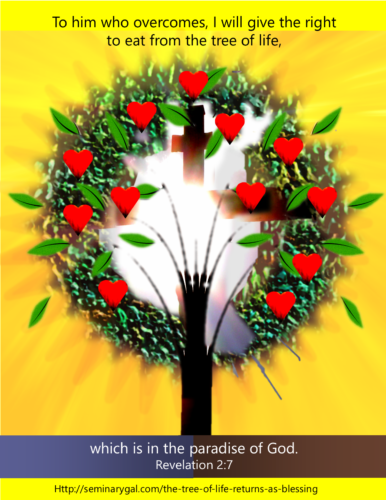 It would be death constantly nipping at our heels, threatening to steal our joy, and rob us of so much we hold dear.
It would be death constantly nipping at our heels, threatening to steal our joy, and rob us of so much we hold dear.
Outside of Eden–in the land of thorns and thistles–our lives would be spent in constant conflict between desiring to return to a place of blessing with full dependence upon God and the rubble of a life in perpetual denial of a need for God in a do-it-yourself world.
Fortunately for us, God did not leave it there. That sword-bearing cherubim may have prevented Adam and Eve from running back in, but that was for their benefit. Living our days in chronic sin and inner conflict is no life. So Jesus came to rescue us and give us eternal life.
The tree of life returns in the Bible as a blessing for those who overcome because Jesus died for us.
Revelation 22:1 Then the angel showed me the river of the water of life, as clear as crystal, flowing from the throne of God and of the Lamb 2 down the middle of the great street of the city. On each side of the river stood the tree of life, bearing twelve crops of fruit, yielding its fruit every month. And the leaves of the tree are for the healing of the nations. 3 No longer will there be any curse. The throne of God and of the Lamb will be in the city, and his servants will serve him. 4 They will see his face, and his name will be on their foreheads. 5 There will be no more night. They will not need the light of a lamp or the light of the sun, for the Lord God will give them light. And they will reign for ever and ever. 6 The angel said to me, “These words are trustworthy and true. The Lord, the God of the spirits of the prophets, sent his angel to show his servants the things that must soon take place.” 7 “Behold, I am coming soon! Blessed is he who keeps the words of the prophecy in this book.
I, for one, am glad that the Bible ends with hope and joy and blessing.
That tree of life returns to be ours. It will be on both sides of the river, bearing fruit, crop after crop, and there will be healing.
We need that.
Revelation 2:7 He who has an ear, let him hear what the Spirit says to the churches. To him who overcomes, I will give the right to eat from the tree of life, which is in the paradise of God.
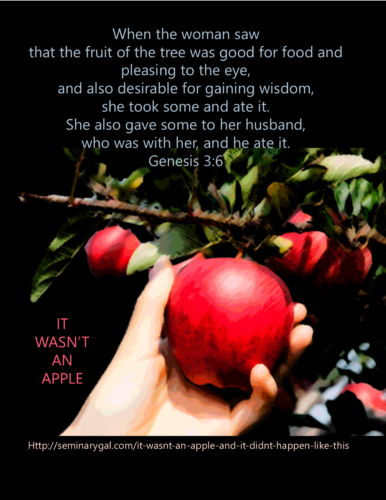 There are many Fractured Fairytales of the Fall of Man. I
There are many Fractured Fairytales of the Fall of Man. I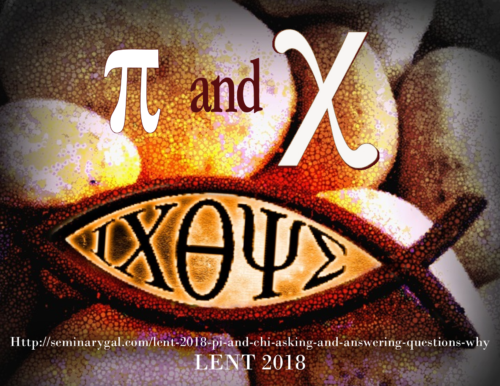
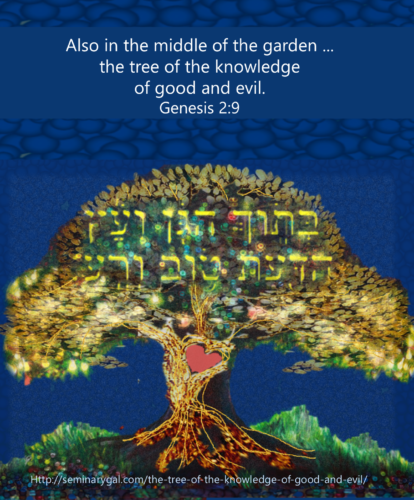 Why, oh why didn’t God warn Adam about that tree?
Why, oh why didn’t God warn Adam about that tree? 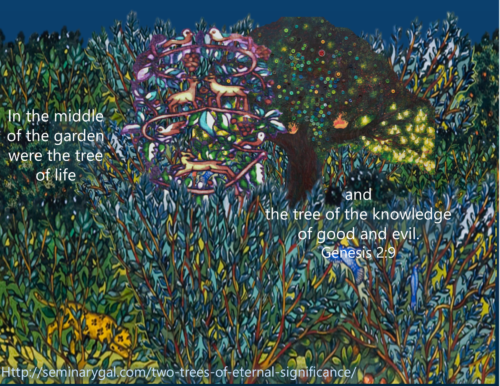 ***
***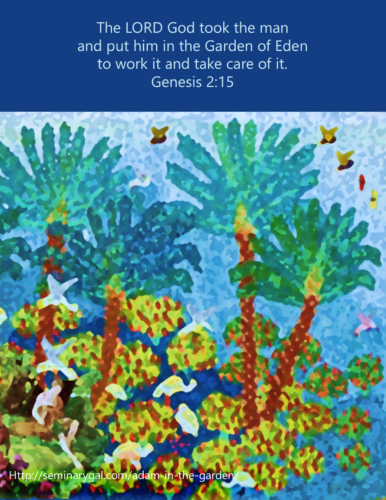
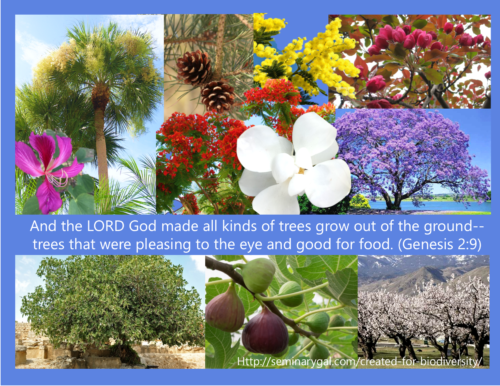 We can all agree that the Bible is not a science textbook or a research biologist’s journal. But when you consider the
We can all agree that the Bible is not a science textbook or a research biologist’s journal. But when you consider the 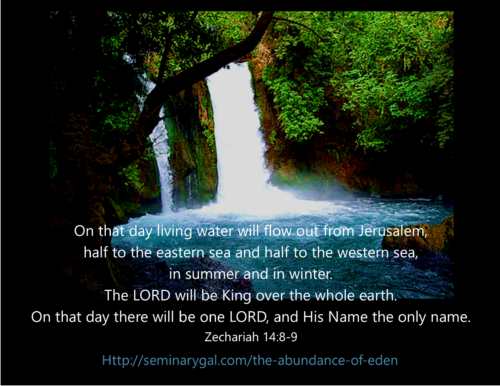 Food for thought:
Food for thought: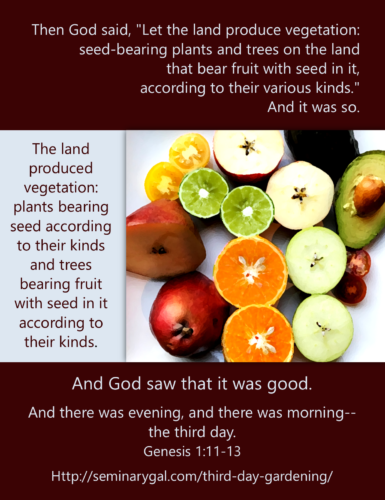 Don’t you find it interesting that people always try to poke holes in the Bible, that it’s nothing but a bunch of fairy tales and myths? And yet, here it is, as true today as it was then.
Don’t you find it interesting that people always try to poke holes in the Bible, that it’s nothing but a bunch of fairy tales and myths? And yet, here it is, as true today as it was then. 